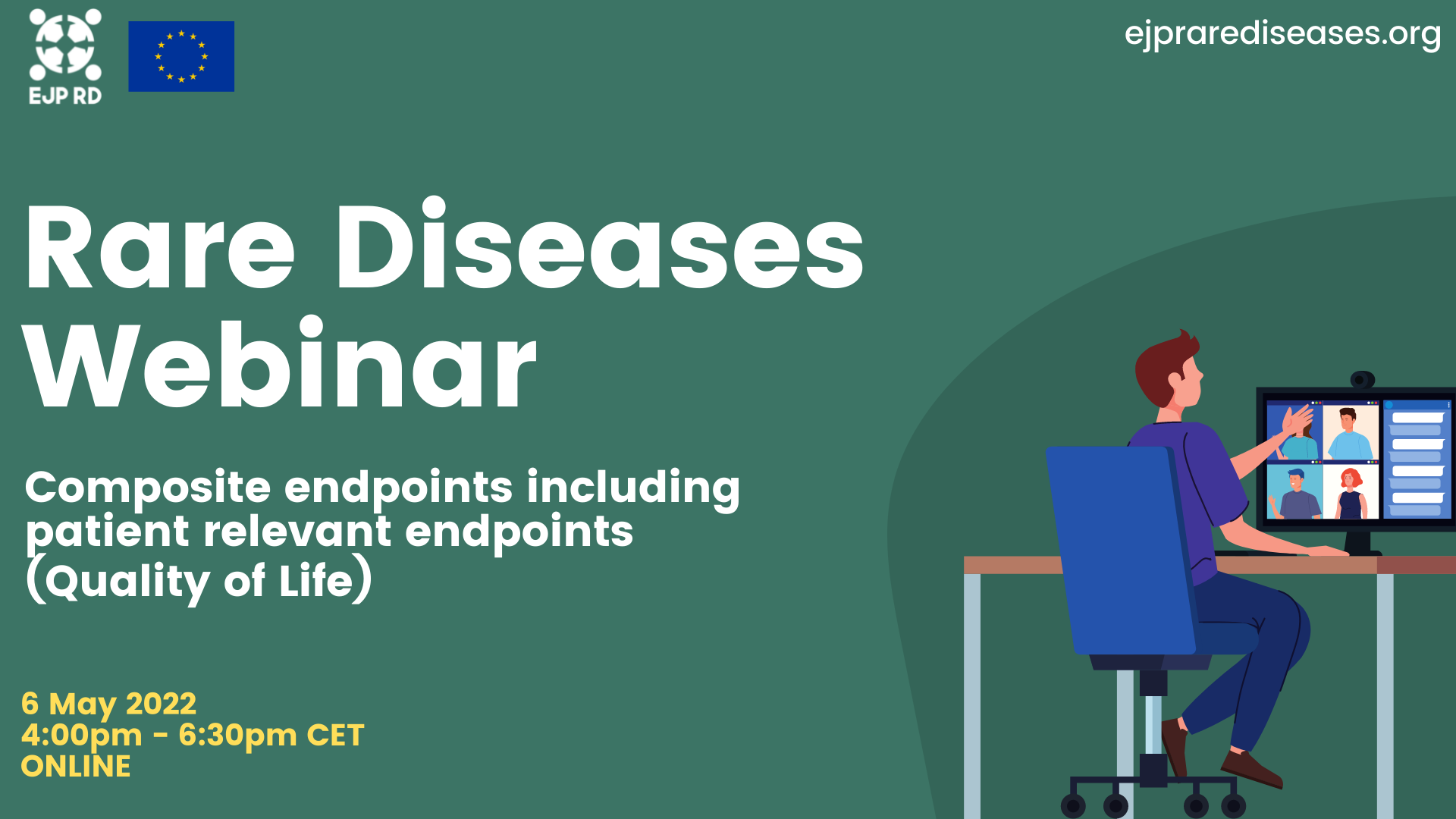- 6 May 2022 - 16:00
- Online


When assessing the efficacy of a treatment in any clinical trial, it is recommended by the International Council for Harmonisation to select a single meaningful endpoint. However, a single endpoint is often not sufficient to reflect the full clinical benefit of a treatment in multifaceted diseases, which is often the case in rare diseases. Therefore, the use of a combination of several clinical meaningful endpoints is preferred. Combining endpoints on a test statistics level or on the level of p-values, in general, ignores the correlation between the endpoints, while combining information on the subject level in composite endpoints does allow to take correlation into account. Standard methods of analysis for a composite endpoint, however, are limited in a number of ways, not the least in the number and type of endpoints that can be combined as well as its poor small sample properties. The recently proposed class of non-parametric generalized pairwise comparison methods on the other hand allow for any number and type of endpoints and has good small sample properties. Moreover, this very flexible class of methods allows for prioritizing the endpoints by clinical severity, for matched designs and for adding a threshold of clinical relevance.
Our main focus will be on introducing the generalized pairwise comparison ideas and concepts as well as demonstrating its benefit in small sample trials, more particularly in including patient relevant endpoints, such as quality of life (QoL). Knowledge of common statistical inference terminology is essential to successfully follow the course.
The aim of the lecture is:
- to learn about procedures to combine multiple endpoints and its limitations
- to argue that generalized pairwise comparison is a suitable method to combine any number and type of endpoints (including QoL) in small samples
- to understand the properties and the flexibility of the class of generalized pairwise comparison tests
- to know the potential advantages and disadvantages of designing a clinical trial in rare disease with generalized pairwise comparisons primary analysis
This training is an advanced level course. Knowledge of common statistical inference terminology is essential to successfully follow the course.
This training is divided in two parts:
The first part of the webinar consists of a 1.5-hour training in the relatively recent statistical inference with the flexible class of generalized pairwise comparison tests for multiple endpoints. We will learn about the need for multiple endpoints in rare disease clinical trials and understand the limitations of methodologies that can handle multiple endpoints. We will focus on the properties and possibilities of generalized pairwise comparison tests, point out its advantages and disadvantages and illustrate its use and its straightforward interpretation with examples. Finally, we reflect on some potential extensions and implications for trial design.
The second part of the webinar consists of one hour of panel discussion with known experts from different fields bringing various perspectives of the topic. This will include the regulatory, pharma-industrial, academic, and clinical perspective. In particular, questions from the audience will be answered while reflecting these different perspectives.
The training webinar is organized as a series of lectures presented by experts in the specific topics. Interaction between participants and lecturers will be facilitated by moderated question & answer sessions.
The workshop is open to the international research community, clinicians, medical specialists, healthcare professionals and advocacy patient groups with knowledge on the RD Clinical Trials.
The registration is mandatory here.
REGISTRATION DEADLINE: 2 May 2022.
An additional questionnaire with some questions on the webinar topic is also requested to be completed by the registrants.
The training and registration are free of charge.
The training organisers will not cover expenses incurred by the participants in any way.
At the end of the training, participants will be requested to fill an online questionnaire as feedback for learning and impact assessment.
A certificate of attendance will be given at the end to the participants who attended the entire webinar.
English.
Online. Details for the connection will be provided in advance to confirmed participants.
This Training webinar is organized by Universitaetsklinikum Aachen (Germany), Istituto Ortopedico Rizzoli IRCCS (Italy) and Assistance Publique Hopitaux de Paris (France).
If you have questions, please contact the course organisers through this email address: lorena.casareto@ejprd-project.eu
Please, indicate in the Subject: WP20 May training webinar
EVENT INFO :
- Start Date:6 May 2022
- Start Time:16:00
- End Date:6 May 2022
- End Time:18:30
- Location:Online
